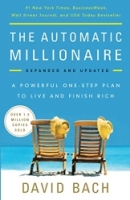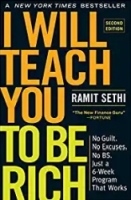
Finance
And for the final Pandemic of 2020-2021 Project, I thought I would once again tackle the finance page. I was recently asked some questions about basic investing and I realized I had not revisited this subject in many years. Since I've been wanting to rewrite my Finance page anyway, this seems like a good opportunity to organize everything (again). I also noticed that it's been almost 20 years since I read the first finance books and reviewed them on my website. I never did a comprehensive review of the books as a whole which makes it all a bit disjointed, so I'll try and address that as well.
Personal Finance
So, "Who is this page for?" Me of course. Ok, only slightly kidding. The reason I always have issues organizing this page is because I never clearly answered that question and the articles just kind of go every which way. With that being said, this time I'm going to organize this page for myself. Specifically, I'm going to organize it by questions for my own reference and so that I can easily refer others to answers to questions like "What are some good introductory personal finance books?" or "What are some simple portfolio ideas?"
The 10,000' View
If you're the kind of person that likes to skip to the end of the book, then this is for you.
Save 10% or more of your gross salary for the next 20-30 years. Invest your savings in a set of diversified index funds and preferably within a tax deferred vehicle such as a 401K or IRA. Retire and withdrawal no more than 4% of the total of your savings every year. Done.
That's pretty much it. Start Saving, Invest your Savings, and Retire. If you would like a few more details, check the link below.
What are Some Good Introductory Personal Finance Books?
If you're the kind of person that wants motivation and inspiration in a positive and upbeat style without getting bogged down in the details I would recommend "The Automatic Millionaire" by David Bach.
If you like a drier wit, some tough love, and all the gritty details then I would highly recommend "I Will Teach You to be Rich" by Ramit Sethi.
If you can't be bothered to read a book, I'll summarize them both below. And it's going to start sounding familiar. So what ideas do they both promote?
- Save at least 10% of your income, but more is better
- Invest this in your companies 401k plan. Preferably in a "Target Date", "Lifestyle", or similar plan
- Automate this savings
- Invest in Index funds if possible
That's pretty much it. Start Saving, Invest your Savings, and Retire. If you would like a few more details, read the 101 below.


What Mutual Funds Do I Invest In?
Assuming you have started saving some money automatically in a tax deferred savings plan like a 401k, where should you invest it?
The Short Answer
Choose a Vanguard Target Date Retirement Fund like the one below based on your retirement year.
| VTHRX | Stock/Bond | 100% | Vanguard Target Retirement 2030 Fund |
Do you want more personal control? Then choose a 3 Fund option like below.
Assuming you want the following
80/20 (Stocks/Bonds)
80/20 (US / International)
| VTSAX | Stock (US) | 60% | Vanguard Total Stock Market Index Fund Admiral Shares (US) |
| VTIAX | Stock (INT) | 20% | Vanguard Total International Stock Index Fund Admiral Shares |
| VBTLX | Bond (US) | 20% | Vanguard Total Bond Market Index Fund Admiral Shares (US) |
What New Ideas Do You Have?
I'm sure anyone who has written about personal finance and investing has run into the same issue of there being only so much new information out there. Having a truly new idea is unlikely and the best you can hope for is a new spin. These are mine.
- Spend Half, Save Half
- The easiest way to save more. While it's possible I read this somewhere else, if I did it was decades ago. Since I've not heard it repeated as anyone else's hook, and it really was the way I got to where I am, I'm simply going to call it my idea at this point.
- Your Little Green Truck Moment
- Everyone will have one. Will you take advantage of yours?
- Tax Rates 2018
- When it's all said and done, what do I pay in taxes?
- When to Stop Saving
- Are there benefits to stopping savings early?
- A Better Way to Think of Risk
- The worst year. Is this more than you are willing to accept?
